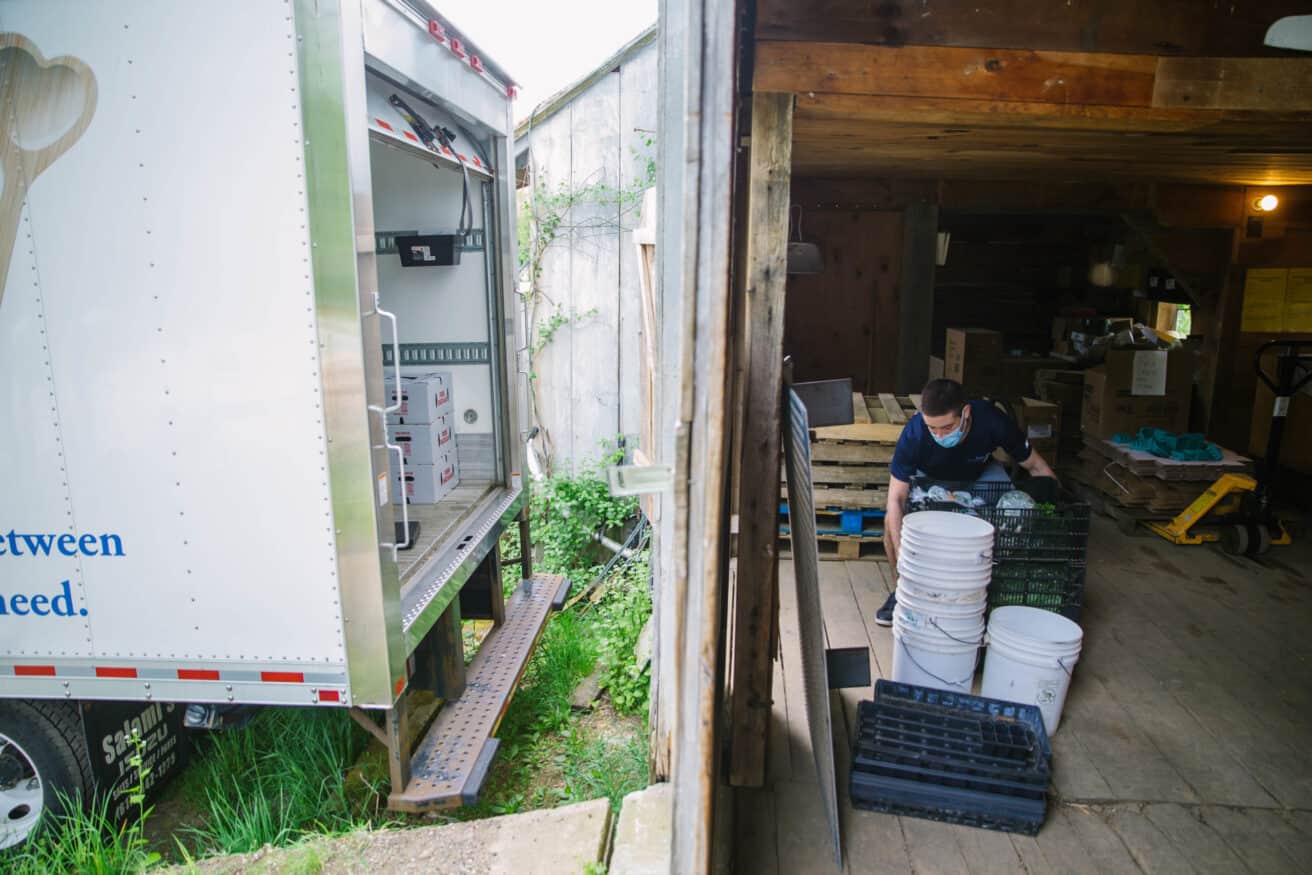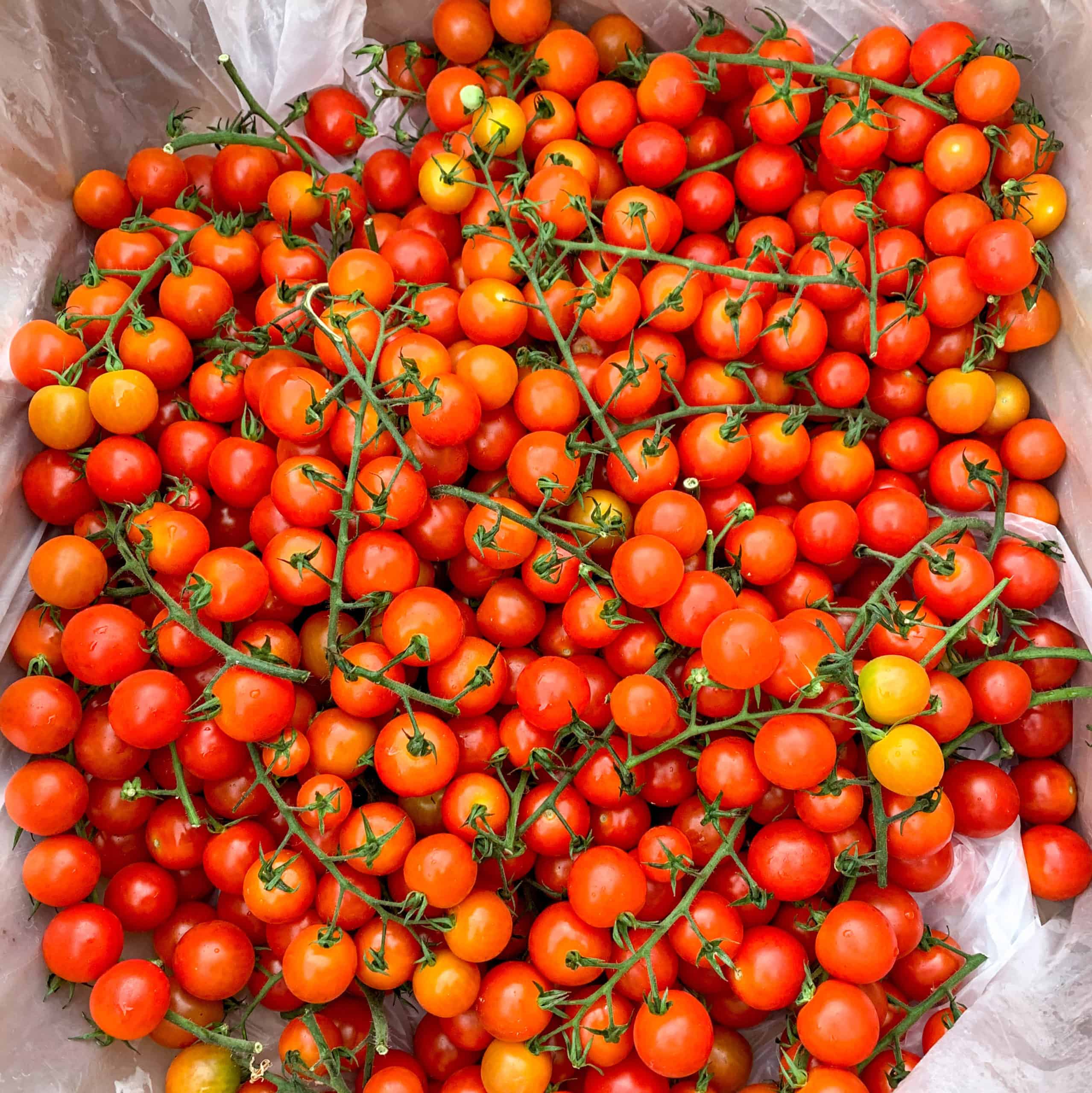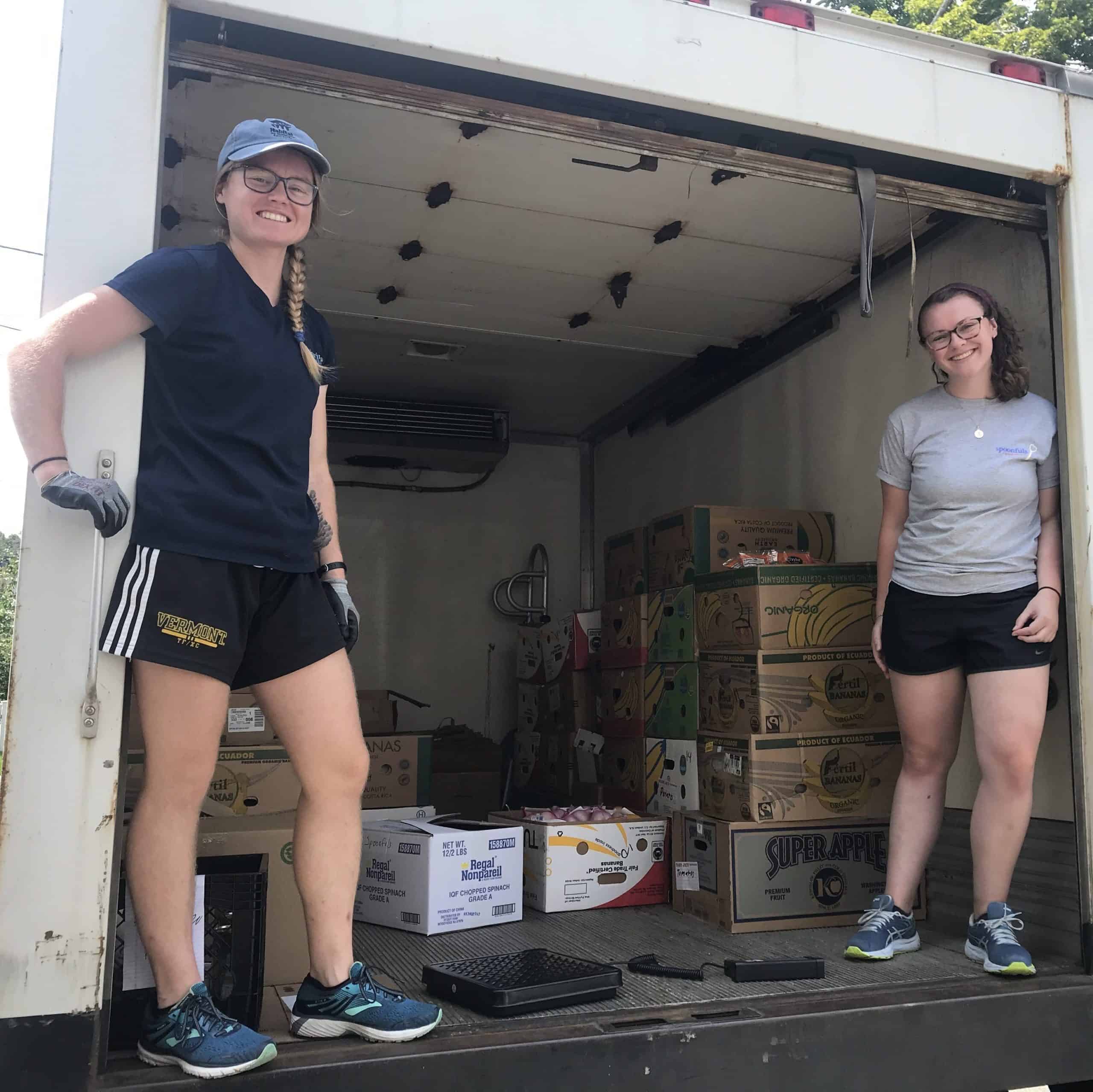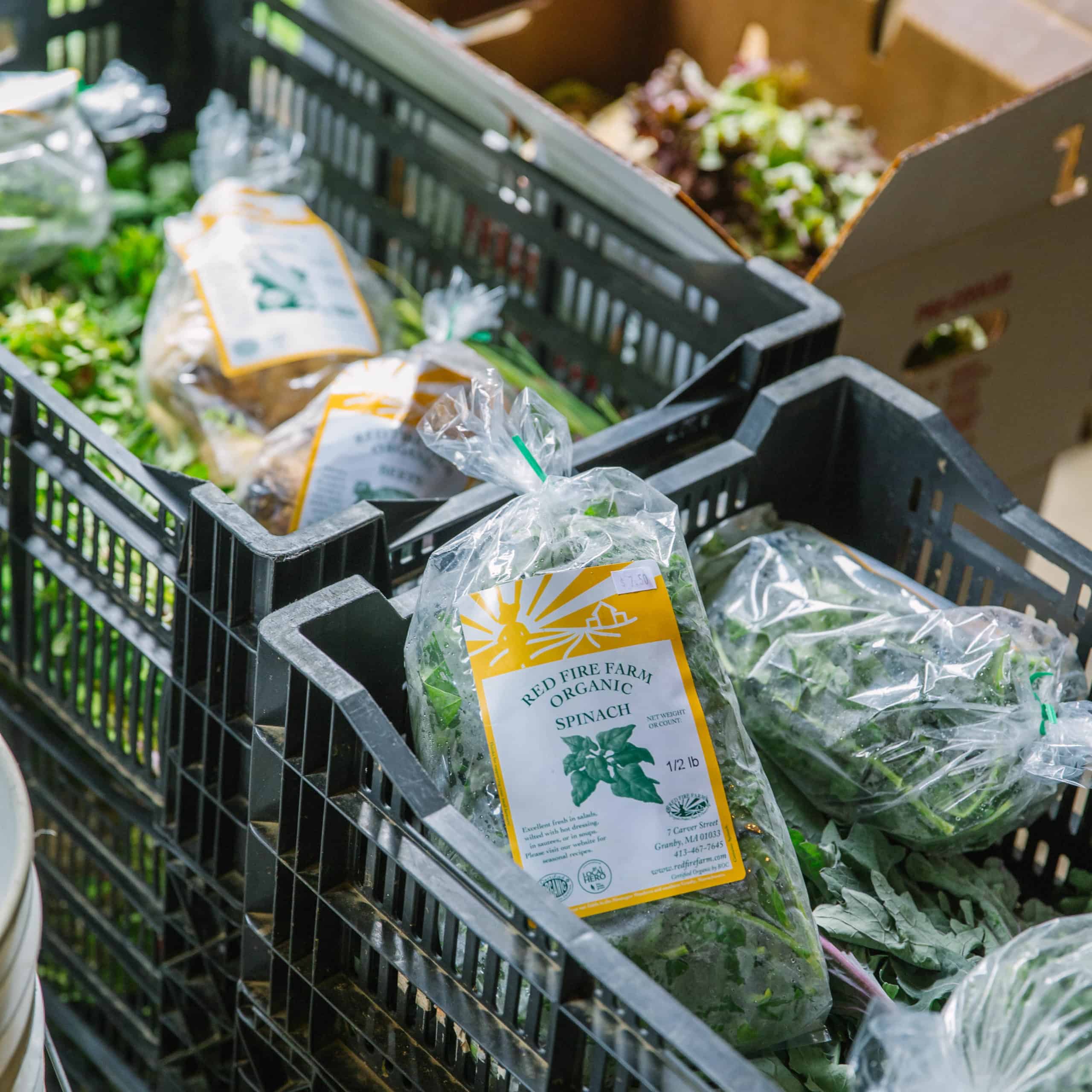Spoonfuls Fact vs. Fiction

Learn more about food recovery – and ours in particular – in this blog about what food recovery isn’t. (If you don’t know, now you know.) These are some of the myths and misconceptions we’ve heard, said, or believed until someone graciously set the record straight.
“Beggars can’t be choosers” – or anything else taken to mean that people who seek out food resources should accept whatever they can get, like it or not.
Statements like these run counter to what we, at Spoonfuls, believe. They sidestep people’s dignity and fail to recognize that access to safe, healthy, culturally-appropriate food is a basic human right. Moving right along…

Food recovery is dumpster diving.
No. (And a little louder: No.) Food recovery involves picking up food that would otherwise be discarded and actively preventing it from going to waste. In Spoonfuls’ case, that means partnering with food retailers like grocery stores, wholesalers, farms, and farmers’ markets that have excess or unsaleable product and delivering it, same day, to community food programs across Massachusetts that serve people facing food insecurity. It means working directly with retail partners to help train their employees to set aside as much edible food as possible since, once food hits the trash, it’s no longer fit for human consumption. That’s as much related to our company values as to safety standards. Remember that thing about improving access to safe, healthy, culturally-appropriate food? Right. No dumpsters.
Spoonfuls relies on volunteers to recover and distribute food.
While some food recovery organizations do engage volunteers to recover food, we don’t. Our Food Recovery Team is comprised of staff – and we think this is important. It creates greater accountability for food safety standards, safe driving, and schedules. Our team shows up when they say they will. They have layers of back-up in place should someone need a day (or more than a day!) off the road. Partners – both food retailers and nonprofits we work with – can rely on Food Recovery Coordinators, who work a familiar route. Staff get to know their partners’ needs very well, and that enables them to better source food that end-recipients will ultimately be able to eat and enjoy based on things like their dietary and cultural needs and tastes.
Looking for ways to get involved? Start here.
Spoonfuls recovers “expired” food.
No, but we do often intercept food that’s at and sometimes just past a “best by” or “sell by” date – and those don’t mean the same thing as “expired.” Date labels that read things like “best by,” “sell by,” and “enjoy by,” are a manufacturer’s recommendations related to quality and freshness – not food safety. For many of the foods we pick up, there’s an acceptable window beyond a best by date in which we are still able to provide them to our nonprofit partners. Still, Spoonfuls’ ServSafe-certified Food Recovery Coordinators are trained to always use their senses to double-check whether a food is good to eat in much the same way as one might when inventorying the items in their fridge: Is the package leaky or severely damaged? Is this food moldy? Does it smell the way it should? If it doesn’t, don’t pass go!

Spoonfuls is a food bank.
We are not. Spoonfuls is different from a food bank in at least two important ways. 1) Our focus is on perishable food (things like fresh fruits, veggies, dairy, meats, baked goods, and so on). Food banks distribute perishable food, too, but they also offer “shelf-stable” items – those you can store in your pantry for a while. The truth is, if you took a look at a typical Spoonfuls’ haul, you wouldn’t see very much that’s shelf-stable. You’d see a lot of food that you’d want to weave into a yummy meal as soon as you can!
2) Since we’re dealing with fresh, perishable food, we never bank it. There’s no Spoonfuls’ warehouse or offsite storage facility. We operate on a direct distribution model. That means that what we pick up, we deliver that same day to our nonprofit partners. Our trucks hit the road, stock up, and empty out in a matter of hours. Our ability to move that food so quickly helps improve access to healthy food for people who need it. Also of note: We work with food banks – Greater Boston Food Bank in the eastern part of the state, Food Bank of Western Massachusetts in the west – to be an additional source of fresh food for pantries and meal programs in those regions.
Spoonfuls recovers from restaurants.
We have deep, meaningful connections in the hospitality community. Our Culinary Board helps elevate conversations about wasted food and opportunities to do something about it. And, no doubt, chefs help to make Spoonfuls’ food-forward events a success. But we rarely recover from restaurants. (Some smaller and/or volunteer-led food rescues do. We don’t.) Our retail partners are ones that, by the nature of their business, have more food up for grabs than restaurants typically do. Grocery stores, for example, which make up the bulk of our food donor partners, often order enough to keep their shelves fully stocked whether or not they can sell off all that food. That’s where we come in.
Spoonfuls’ is a Boston operation.
This is a “yes, and.” It’s true that Spoonfuls is headquartered in the Greater Boston area (Newton). Our largest footprint is in the Greater Boston area, too. But we also operate in MetroWest, Worcester County, and Hampden County. You can see a map of our existing service footprint on our website. It drives home the point: We’re bigger than Boston! In terms of communities served, we’re actually the largest food recovery operation in New England.

Food recovery is a bandaid on the problems of food insecurity and climate change.
Food recovery is a tool we have to feed people and ameliorate the effects of climate change. And it’s an important one. If we recovered just over 30% of all the food we wasted in the United States, we’d be able to feed over 42 million people: everyone facing food insecurity in the U.S. today. Plus, because food waste is the #1 material in landfills, recovering as much as possible works to reduce greenhouse gas emissions. In fact, “Feed Hungry People” is the U.S. Environmental Protection Agency’s second most preferred action in their Food Recovery Hierarchy, a key model in their systemic approach to reduce wasted food. In other words, food recovery is not a bandaid.
However, food recovery isn’t entirely preventative, either. That’s why we work together with our partners and supporters to address the root causes of hunger and the climate emergency. In addition to recovering food that feeds people today, we’re advocating for policy solutions. Ultimately, we think there’s a path away from urgent response to one in which we’re influencing and creating an improved supply chain. Learn more about our advocacy priorities here.
Have a question about Lovin’ Spoonfuls not covered here? Check out our website, contact us, or find us on social. (We’re on Facebook, Instagram, Twitter, and LinkedIn.)